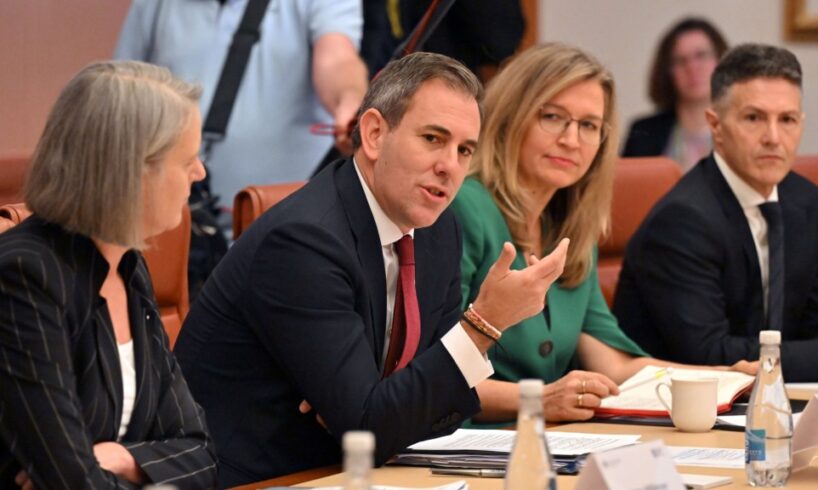
The three-day economic reform roundtable produced few instant solutions for struggling small businesses, but revealed government support for longer-term tax reform and policies to boost business investment.
Concluding 29 hours of hardcore policy discussion, Treasurer Jim Chalmers on Thursday said the 25 participants reached a greater level of consensus than expected at the start of the week.
The result: 10 focus areas and three guiding principles on tax reform, with broad support from the business representatives, lawmakers, senior economists, and union leaders present at Parliament House.
These include simplifying and decluttering excess regulation, seen by small business groups as a barrier to productivity and economic growth.
The panel agreed that building an adaptable workforce is crucial, after the Productivity Commission called for financial incentives for small business providing extra work-related training.
Smarter business news. Straight to your inbox.
For startup founders, small businesses and leaders. Build sharper instincts and better strategy by learning from Australia’s smartest business minds. Sign up for free.
By continuing, you agree to our Terms & Conditions and Privacy Policy.
Small businesses may also be affected by the roundtable’s commitment to accelerating housing construction.
Assistant Minister for Productivity Andrew Leigh has indicated Australia’s construction sector is overweight in small and medium firms, saying “there’s fewer big players than the economy needs”.
Related Article Block Placeholder
Article ID: 321826
And after Chalmers declared ‘nuisance’ tariffs on imported goods do more harm than good, the roundtable presented tariff reform and simpler trade regulations as a priority.
Other principles include a commitment to:
Faster approvals in national priority areas,
A single national market, making it easier to trade across borders,
Turning artificial intelligence into a national priority,
Modernising government services,
Finding new ways to attract capital to Australia and effectively deploy investment, and,
Constructing a better taxation system.
Tax reform no longer an afterthought
After Prime Minister Anthony Albanese declared Labor will bring about no new taxes before the next federal election, Chalmers left the door open to meaningful changes to the tax system, guided by three principles.
Any reforms must provide a “fair go” for younger generations, Chalmers said.
Roundtable attendees, including former Treasury secretary Ken Henry, have argued that current tax settings place too much of the burden on young Australians and working adults.
Independent MP Allegra Spender, another attendee, last year presented her own tax ‘green paper’ arguing young Australians hold too much of the tax burden.
Australia’s tax system is “imperfect and one of its most troubling imperfections is best seen through an inter-generational lens, which is why we take our responsibilities to the coming generations seriously,” said Chalmers.
The government will also be guided by policies that make the tax system simpler and more sustainable, while increasing private-sector investment, said the Treasurer.
To achieve that reform, Chalmers said the government would not commission another major external review, like Henry’s own 2010 blockbuster.
Instead, any “further steps” on tax reform “would be a matter for Cabinet” to decide.
There is no shortage of options for the Albanese government’s inner sanctum to consider.
Prior to the roundtable, the Productivity Commission suggested lowering the company tax rate for most Australian businesses to 20% — a reduction from the 25% already offered to small businesses.
At the same time, it suggests a new 5% cashflow tax, which businesses could work down by investing in upgrades or new technology.
More work needed to achieve reform
With a few medium-term priorities established, and tax reform seemingly a few steps closer than at the start of the roundtable, small business representatives are cautiously optimistic about what comes next.
Council of Small Business Organisations Australia chair Matthew Addison attended the roundtable, and in a Thursday communique, the representative group said “there is an opportunity to build on the goodwill” shown over the past three days.
“Attendees were receptive to the challenges faced by small business and to the proposed programs of work presented by COSBOA, that would help create the settings to enable small businesses to thrive,” it said.
“However, there is much work that needs to be done.”





